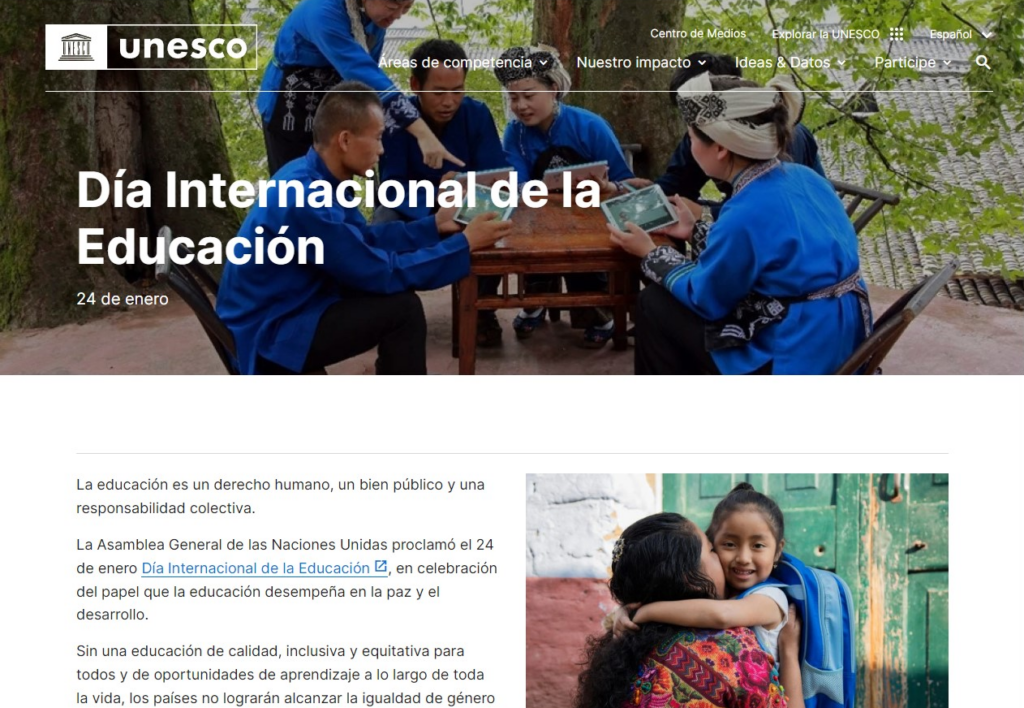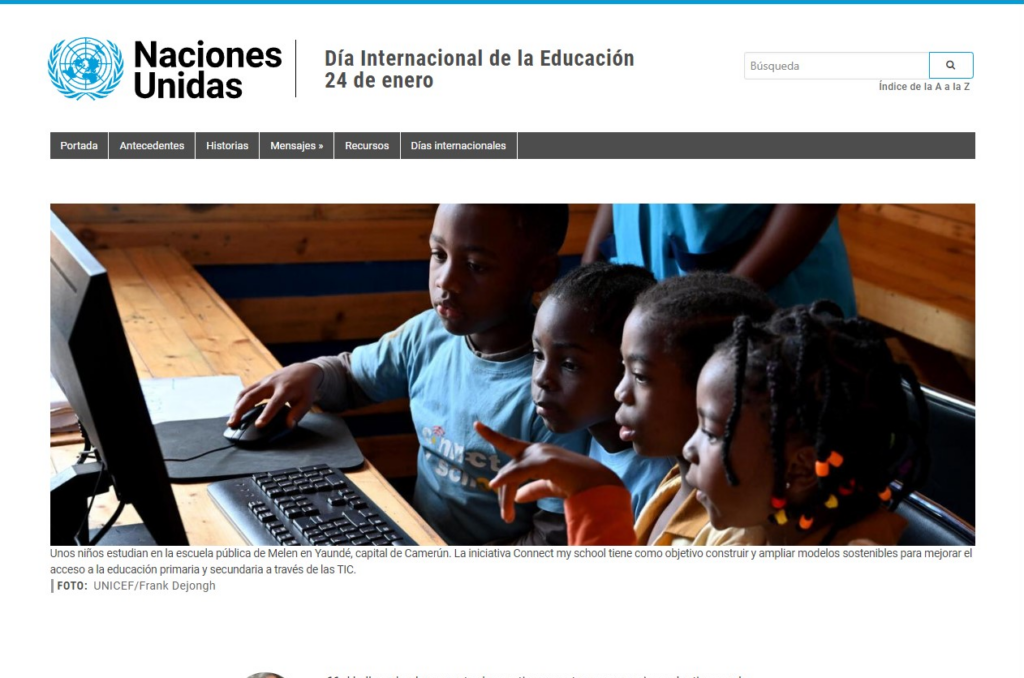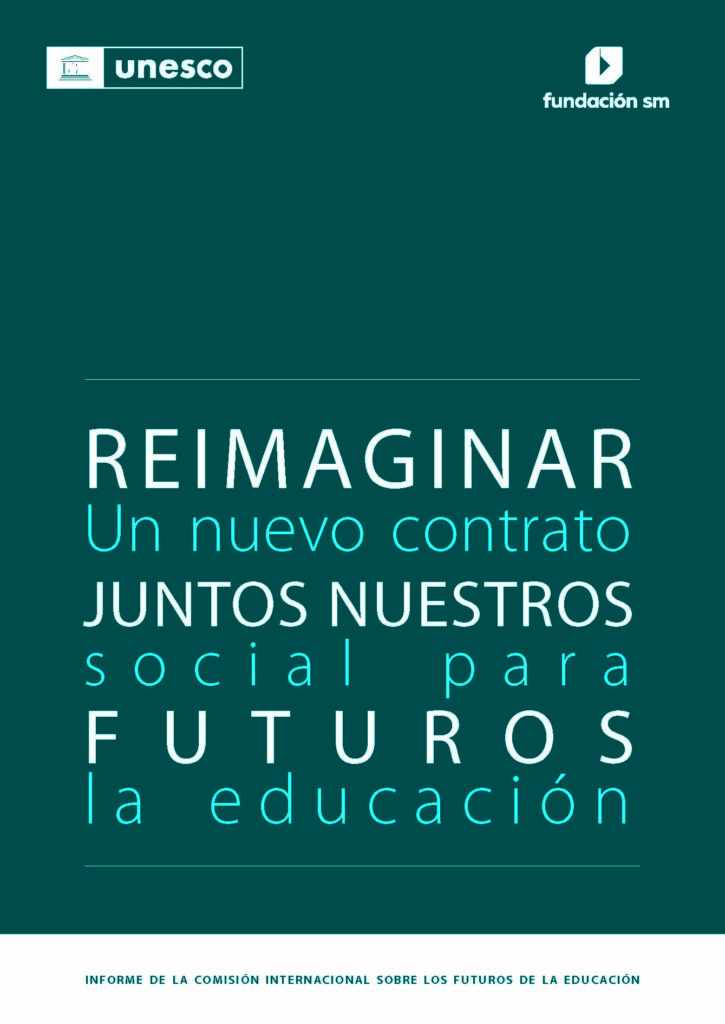Esta entrada también está disponible en: Aragonés Català Español Français English
LIZARDS FOR THE HEAT
I’ve slipped it to my brother. As he insists on never studying, I thought I could make fun of him for a while.
I told him that the best way to fight the heat was to eat lizards:
– Yes, yes, yes. Everyone knows it (it always annoys him so much to be the last to find out about everything). There’s nothing better to get through the summer than eating lizards.
Him: What are you saying? How are you going to eat lizards?
Me: How else are you going to absorb the melanin?
Him: Oh, right, the melanin. That skin thing.
Me: Yes, the skin thing that helps protect you from the sun. (It’s important to use a word that resonates with him and pose a situation that may seem plausible, mixing truths that he knows with lies that you’ve just made up, so that it doesn’t show. And don’t laugh, eh? Don’t even let him see a smile). If you eat lizards, your stomach and intestine absorb the melanin that the lizards have on your skin and this melanin passes into your bloodstream, also into your skin, and so the heat is better tolerated.
I wait a few seconds and to back up my theory, with the most quizzical face I can muster, I ask, “Haven’t you heard? Yesterday they made a thread on Twitter”.
He doesn’t answer. I think I’ve got it down:
“Shall we go out and get some lizards to have with our snack?”- When I finish saying the sentence, I think I’ve gone too far and that he’s going to tell me not to tell him any bullshit, but suddenly he says: “Come on, let’s go, it’s so hot…”.
I can hardly hold back my laughter and open the door of the house. “Ah, I’m going to get a cooler to put them in. I go to the kitchen and come back with a cup in my hand. I can’t believe he’s swallowing it, but now I want to see how far I can go.
We go out and hunt lizards, like we used to do in my grandparents’ garden. When we get back, the moment of truth arrives: “Come on, now we’ll wash them a bit to get rid of the dust and eat them,” I say nonchalantly. I open the táper, pour water over the lizards and offer them to him, holding one by the tail so that he can see that I’m going to eat it. And just as she is about to put it in her mouth, my mother enters the kitchen:
– But what are you doing?
– The melanin thing, my brother answers.
And then I can’t take it any more and I start to burst out laughing at the level ‘the neighbours come down to ask what’s going on’.
If my brother had studied a little more, he would surely have known that melanin is a pigment that most living beings already have, so we don’t have to eat another animal to get it.
Maybe he would also have known that reptiles do not generate their own heat and that is why they live in very warm places and look for the sun, because it is the only way they have to warm themselves and melanin, although they also have it, has nothing to do with the matter.
It would also be good if you stopped to consider that anyone can write about any subject on networks, without that necessarily meaning that they know what they are talking about.
I don’t know what you think, but I think education is crucial so that no one makes us believe anything that isn’t true. Don’t you think so? Otherwise, we end up eating a lizard, convinced that it’s going to be good for our bodies. Despite this, do you have any idea how many children are still out of school in the world? Take a look below.
Description
Education is the basis for the integral formation of every person and for their insertion in the world. It is a human right, a public good and a collective responsibility.
Without quality, inclusive and equitable education for all and lifelong learning opportunities, countries will not achieve gender equality or break the cycle of poverty that leaves millions of children, youth and adults behind.
Today, 262 million children and youth remain out of school, 617 million children and adolescents cannot read or do basic numeracy; less than 40 per cent of girls in sub-Saharan Africa complete primary education, and some 4 million refugee children and youth are unable to attend school. The United Nations General Assembly sets aside 24 January as International Education Day to keep in mind the role education plays in peace and development, and to remind us that the right to education is universal.
Further information
The objectives and contents of this proposal can be related to other significant dates also addressed in this project, such as International Literacy Day (8 September), World Teachers’ Day (5 October) or the International Day against Violence and Bullying (3 November). It can also be linked to activities that can be carried out in the classroom in connection with Aragonese Education Day (30 May).
In Aragon…
Since 2001, Aragon has enjoyed competences in education and has the capacity to organise the primary and secondary education curriculum. The Educaragon portal gathers all the news, actions and initiatives aimed at the organising the educational process in our autonomous community.
Traditionally and autonomously, initiatives aimed at consolidating models for creative and participatory education have been carried out in Aragon. Since the 1970s, the Movement for Pedagogical Renewal in Aragon has promoted the Altoaragón Summer School. May 30 is established as Aragonese Education Day. With a more pronounced follow-up in Primary Education, it allows the sharing of projects, the recognition of certain professional tasks… We can appreciate it in the 2022 gala.
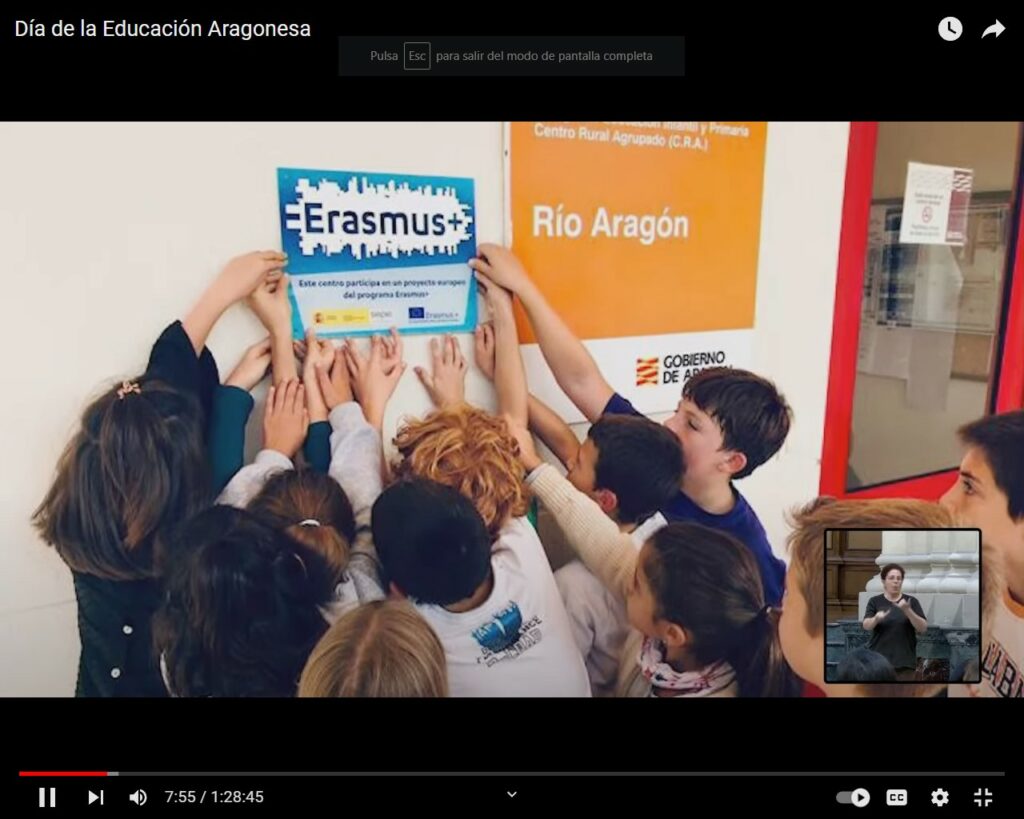
A detail
On the occasion of the 2023 celebration of this International Day, the slogan launched by Unesco calls for “investing in people, prioritising education” to accelerate progress towards all the Sustainable Development Goals in a context of global recession, growing inequalities and climate crisis. In addition, the International Day was dedicated to the girls and women in Afghanistan who have been deprived of their right to education.
Of interest is the short video which, asserting these objectives, introduces “a message of hope”.
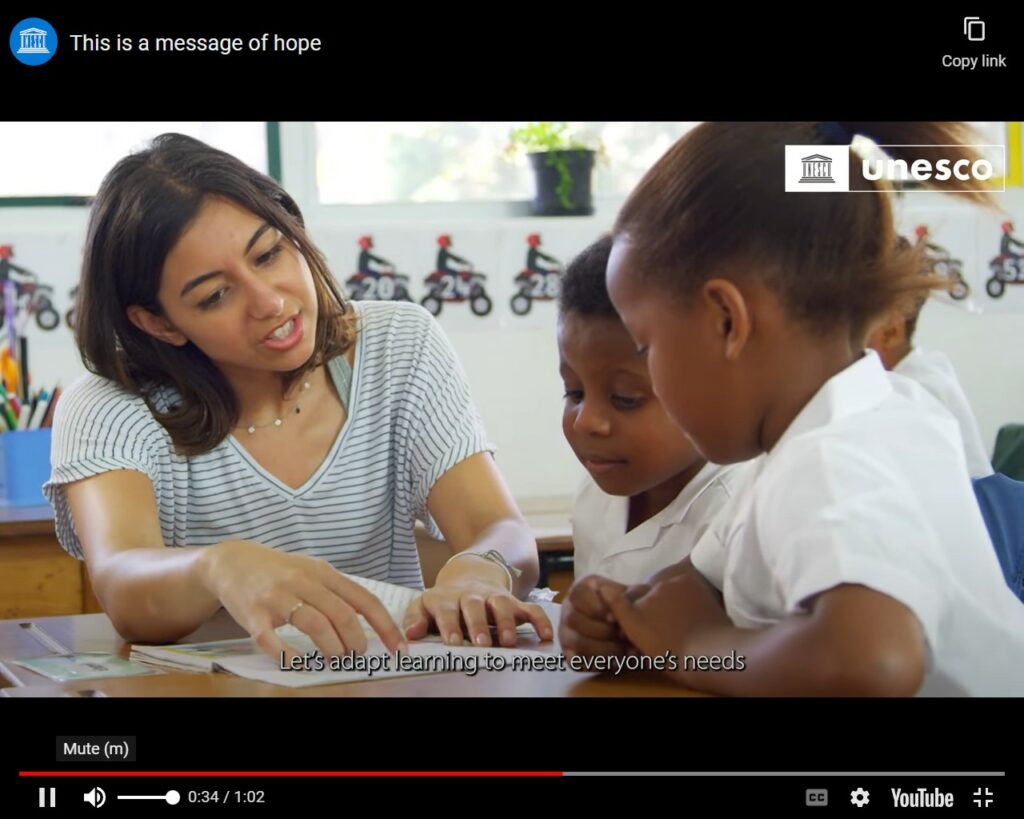
A reflection
Goal 4 within the UN 2030 Agenda for Sustainable Development is “Quality Education”: ensuring inclusive, equitable and quality education and promoting learning opportunities for all.
Suggestions for teachers
In Aragon there is a special sensitivity to the phenomenon of depopulation. It is a real problem in many of our regions. In this context, the closure of a rural school is a real drama which, as well as being symbolic, has many connotations. Attempts to save borderline situations (incentives for new settlers with families…) tend to jump from time to time to networks or to the media, but the social reality is much deeper.
Attention can be drawn to a simple search report or news item. We can also take into account the reality of the centre where we are (large or small city, neighbourhood, county seat, more or less depopulated area…) in order to assign a profile to the work that is proposed.
In relation to all this, some idea can be extracted to share in the classroom: for example, from the collective portal, not exclusively Aragonese, Escuela rural.net. In a broader context, from the reading of the book Schools. Detained time (El tiempo detenido) (Prames, 2006).
It is highly advisable to consult resources such as those linked to the Pedagogical Museum of Aragon or the analysis of contents in references mentioned above (Educaragón, Escuela de Verano…). In general terms, it may be enlightening to read the UNESCO document “Reimagining our futures together: a new social contract for education”.
In this proposal, the means and the objective, the instrument and the purpose coincide. To speak of education is to invoke a totality. To something that is also central to the formation of the person, that is integral, and that is related to many other values.
Among the basic strategies for the application of the development of the curriculum of the Autonomous Community of Aragon is the development of communicative skills, through progress in oral expression and the promotion of reading and writing, in all subjects at the different levels of education. Awareness of the importance of this commemoration helps to reinforce this strategy. As a corrective to problematic social realities and global inequality, education must also be approached from the aspects of cooperation and solidarity raised in the curriculum.
Here we present a selection of the objectives and competences apparently most related to the proposal, but the range may be wider depending on the nuances that we may associate with it.
Objectives that this proposal helps to achieve
ESO:
- To assume responsibly their duties, to know and exercise their rights in respect for others, to practice tolerance, cooperation and solidarity among individuals and groups, to exercise in dialogue, strengthening human rights and equal treatment and opportunities between women and men, as common values of a plural society, and to prepare for the exercise of democratic citizenship.
- To develop basic skills in the use of information sources in order to acquire new knowledge with a critical sense. To acquire a basic preparation in the field of technologies, especially information and communication technologies.
Baccalaureate:
- To exercise democratic citizenship, from a global perspective, and acquire a responsible civic conscience, inspired by the values of the Spanish Constitution, as well as by human rights, which fosters co-responsibility in the construction of a fair and equitable society.
- To consolidate personal and social maturity that allows them to act responsibly and autonomously and to develop their critical spirit. To foresee and resolve personal, family and social conflicts peacefully.
- To promote effective equality of rights and opportunities between men and women, to analyse and critically assess existing inequalities and discrimination, and in particular violence against women, and to promote real equality and non-discrimination of people for any personal or social condition or circumstance, with special attention to people with disabilities.
Subjects to which it can be linked
- Actually, it can be related to any subject in the first cycle of ESO and be assigned to Education for Citizenship and Human Rights in the second cycle.
- Baccalaureate: To be assigned according to modality
Development of competences
- Competence in linguistic communication.
- Mathematical competence and basic competences in science and technology.
- Learning to learn.
- Social and civic competences.
- Cultural awareness and expressions.

